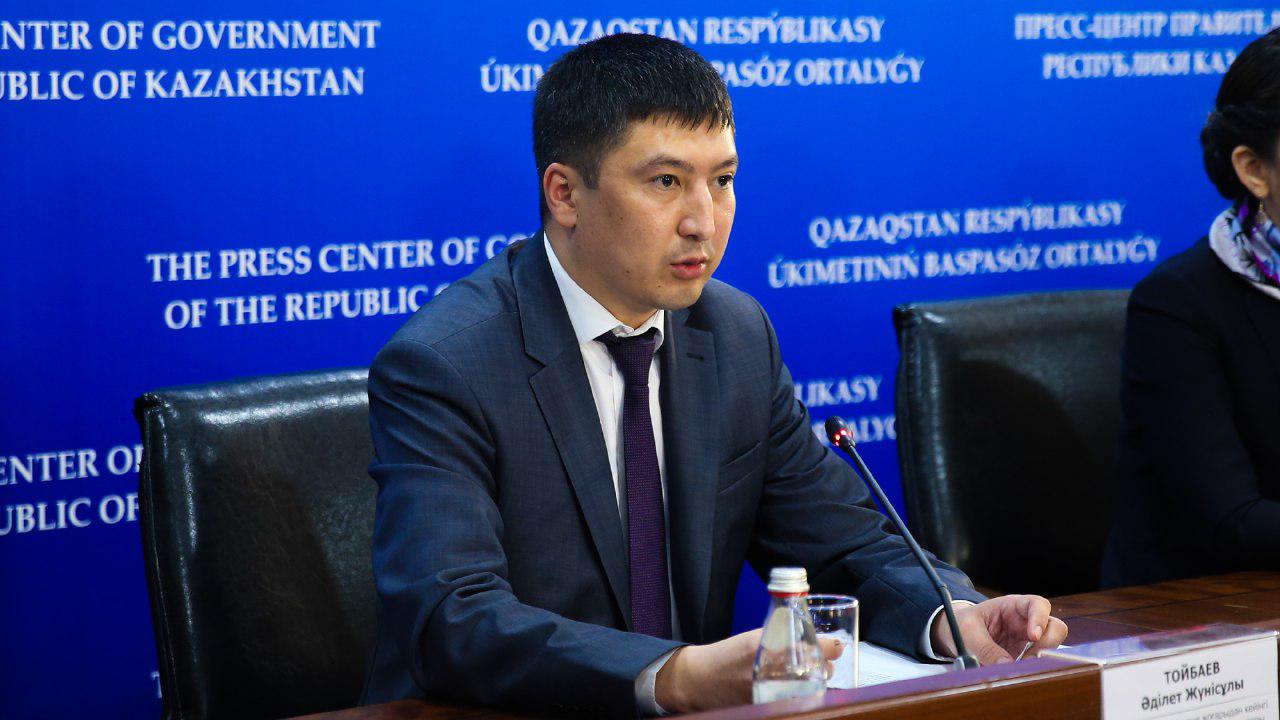03 July 2019, 16:07

During the briefing at the press center of the Government, Director of Higher and Postgraduate Education Department of the Ministry of Education and Science Adilet Toibayev told about the work carried out in the framework of the Year of Youth.
Toibayev noted that the ongoing social reforms are aimed at improving the accessibility and quality of higher education.
In 2018, 20 thousand grants were allocated. Of these, 16 thousand — for bachelor degrees, 3 thousand — for master’s degrees and 1 thousand — for doctoral programs. They were allocated in economically demanded specialties for such areas as information systems, engineering, robotics, nanotechnology.
In 2019, the volume of grants for undergraduate education was more than 51 thousand.
“We think that this is a big support for our young people. Universities contribute to increasing the accessibility of higher education,” said Toibayev.
In order to increase the availability of distance education for young people, the Open University project is being implemented. Its goal is to enhance and encourage young people to learn online. To date, the project involves more than 6 thousand people and 94 universities.
In addition, during the briefing, the director of the department of higher and postgraduate education spoke about the launch of a new project for student volunteers.
“In order to incentivize volunteering in our country, a volunteer voucher will be introduced in 2019. This project will be implemented from Sep. 1. A voucher of 30% of the scholarship will be provided for our students: there are two credit and five credit vouchers. There will also be vouchers for 20,000 and 50,000. This will be realized online,” said Toibayev.
From Sep. 1, 2019, students can register themselves, select certain vouchers and work on them. After that, they will receive their remuneration in a certain amount: 20,000 or 15,000 vouchers.
Toibayev also noted that it is planned to establish a very close connection of volunteer activities with the educational process.
“We will not offer the student a volunteering activity that is detached from his specialty. Suppose, if it is a student of pre-school education and training, she will only be offered a job within her specialty. This is, for example, a volunteering work at a pre-school organization as a psychologist or a teacher. That is, we will not allow a psychologist volunteer to lead robotics classes,” said Toibayev.
He also noted that students who are engaged in volunteering activities can independently form their educational program.
“Suppose if a student runs an extracurricular robotics class, then the credits that must be passed as part of the educational process are accounted to her just like that, she earns a corresponding grade of 100 points. And she does not have to pass this discipline. And she can already direct free credits to other disciplines. That is, she needs an additional class, let us say, in English, she can start it at the expense of the credits she hasn’t used,” said Toibayev. The project on the volunteer movement is a long-term one — designed for at least three years. For three years it is planned to cover more than 50 thousand students.
All areas of volunteering activities are exclusively social in nature. This is the opening of extracurricular classes in courtyard clubs, additional education organizations, sports and intellectual clubs, IT, English, helping people with special educational needs, orphans, participation in charitable organizations, psychological assistance.
Stay updated about the events of the Prime Minister and the Government of Kazakhstan - subscribe to the official Telegram channel
Subscribe